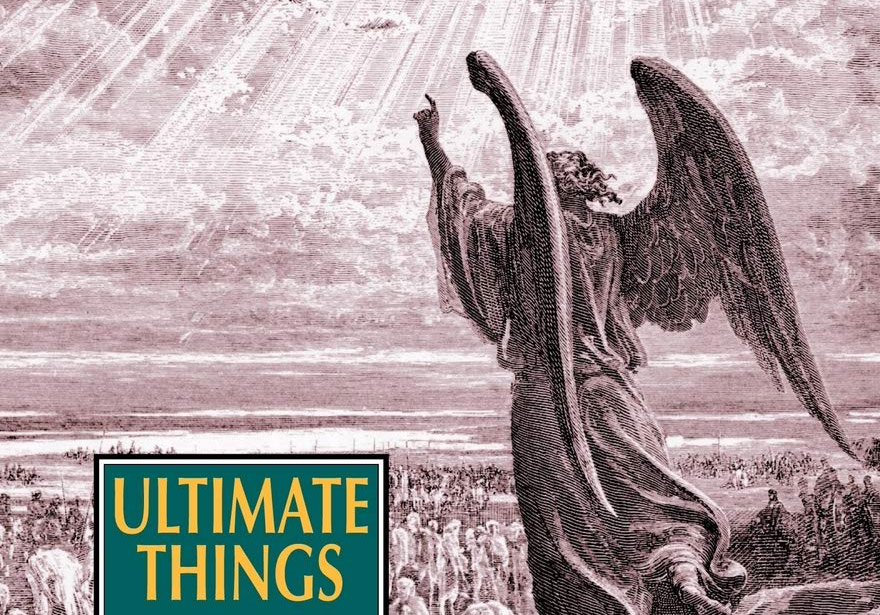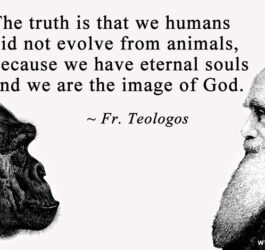 by Chris Banescu –
by Chris Banescu –
The increasing darkness, corruption, and delusion we witness all around us are direct and predictable consequences of man’s rejection of God and truth. Aleksandr Solzhenitsyn warned of the devastating consequences that follow when men forsake God. Dennis Engleman issues a similar warning in his book Ultimate Things: An Orthodox Christian Perspective on the End Times regarding the dangers of man’s rejection of truth.
In rejecting truth, man, who was created in the image and likeness of God, denies himself and the godly nature with which he was blessed from the beginning by his Creator. He purposely blinds himself to reality and destroys the very faculty (reason) that allows him to find and discern truth. In rejecting truth, man purposely closes all “doors to authentic understanding” and obliterates the only avenue that can lead him into communion with Jesus Christ, our Lord and Savior, who is “the Way, the Truth, and the Life” (John 14:6).
When man rejects truth he rejects God and destroys himself. In abandoning truth man opens himself to all manner of delusion, falsehood, and corruption. He abandons the narrow road to salvation and wonders in the wilderness of “this world” at the mercy of evil. He forsakes God’s wisdom and embraces “worldly wisdom” which always leads down the road to perdition, to despair, suffering, and death.
![]()
What is Truth
Pilate’s great question has been dismissed as irrelevant. Truth is no longer a subject of legitimate inquiry. Having willfully closed doors to authentic understanding, mankind’s only option is to devise his own “virtual” reality. Modern thought reflects this degeneration, having been reduced, in Father Seraphim Rose’s words, to “an experiment of in the possibilities of knowledge open to man, assuming that there is no Revealed Truth. … The conclusion of this experiment is an absolute negation: if there is no Revealed Truth, there is no truth at all.”
In rejecting truth, man, being made in God’s image, has denied himself. He has willfully blinded himself to reality, the conclusive foolhardy act: “The fool has said in his heart, ‘There is no God’ “(Psalm 14:1). For if there is no truth (often expressed more palatably as “all truth is relative”), then there can be no Christ God, who alone is “the way, the truth, and the life (John 14:6).
It could be reasoned that the rejection of truth is the heart of all demonic doctrines, for when the serpent contested God’s word, saying to Eve, “You will not surely die” (Genesis 3:4), was he not lying as well as claiming God had lied? Jesus called Satan a liar from the beginning, and Saint Paul understood the clear relationship between the false doctrines of demons and the loss of faith: “Now the Spirit expressly says that in latter times some will depart from the faith, giving heed to deceiving spirits and doctrines of demons” (1 Timothy 4:1).
People who deny truth, and thus their own nature, inexorably become either suicidal or anarchistic. To all who think through the implications of the Lie, a brutal logic emerges: Why endure the “thousand natural shocks that flesh is heir to,” as Shakespeare put it, if life has no meaning? If there is nothing beyond the grave, no reward or punishment to come, why exercise self-restraint or show concern for others? Clearly, if there is no truth, then all things are lawful (which merely means, nothing is unlawful). By this reasoning one should seize all possible pleasure regardless of cost [or consequence], or else put oneself beyond the reach of problems through self-extinction!
Dennis Engleman on Truth in Ultimate Things: An Orthodox Christian Perspective on the End Times pages 106-107.




1 thought on “In Rejecting Truth Man Dooms Himself”